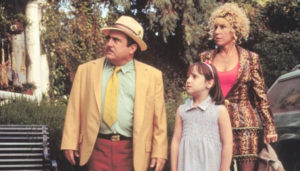
Love must not be seen as the natural extravagance of sex, which would naturally arouse a kind of suspicion. Love’s meaning, in that love is true, is not that of a utilitarian exchange of favors.
While it is generally thought that individuals only pursue their own self-interest, love may be the antidote to that. Published 17 years before The Wealth of Nations (1776), Adam Smith’s Theory of Moral Sentiments (1759) begins by rejecting the idea that people are basically self-interested and declares:
Smith called that sentiment ‘sympathy,’ others would perhaps prefer to call it ’empathy.’ Could these familiar sentiments rise, in some cases, to the significance of being called ‘love’ by those who actually experience them, then?
So, we are not skeptics about love. To us, love is true. Ever wondered what the meaning of love is?
While the path of finding Mr. Right or Ms. Perfect is certainly fraught with peril, people all over the world and throughout all of history seek loving relationships — not the least to share the load of life. Being alone, one can really be lonely. This loving pair-bonding, then, provides the basis for cohabitation or marriage.
That love is true may be experienced when two singles have come to encounter and desire each other with a passion unfettered by convenience or calculation.
And when each finds the other enchanting enough to be able to surrender to him or her, again and again.
And when each has the other’s back through thick and thin and over the ups and downs on the path of life.
And while and when all that is lasting…
Love may be true while it lasts, but true love is when it endured the test of time. ‘It isn’t the ecstasy of the early encounter that is remarkable, it is that true love triumphs lastingly, sometimes painfully, over the hurdles erected by time, space, and the world,’ says French philosopher Alain Badiou. To my knowledge, few philosophers have been concerned with the notion of love enduring, most seem to be just skeptical about the stage of romantic love — one of the possible precursors to real love (friendship being another).
Strange enough, Hollywood rarely makes movies about a love that lasted. I suppose that such movies will not generate much interest as people seem to rather go for emotion-drenching comedies or tragedies about episodes of romantic love — the kind of initial love during which the lovers want to become one.

An exception may be the movie The Notebook, which is about a love that spans decades. The film’s sequences are alternating between the couple’s first blushes of romantic love in the ’40s and the present-day reality of how that relationship has transformed in old age. Ending in unavoidable death, their love is sanctified true.

In many comedies, lovers drive into the sunset with their idealized notion of the other lover: they are in love with being in love and do not yet see the other as a complete human being with all of his or her foibles. Pretty Woman is such a Cinderella story of two supposed opposites who fall passionately in love, learn from each other what is supposedly missing from their lives, and drive off into the sunset without a worry in the world.

Also comes to mind is the movie Titanic, the story of a passionate, illicit affair between an engaged upper class young woman and a working class young artist from the wrong side of the tracks. They meet by chance and fall in love. The film, as a tragedy, that ends soon with Jack’s death and the elderly Rose reminiscing about the passionate twenty-four hours that she “held onto forever.”
Now, a lot of young folks may not care much for that …over time thingy yet. “Love is for the here and now,” they say. Love, when experienced, is rapturous and makes time melt away. True, let’s not knock romantic love or people’s longing for love while it lasts. Because that is where real love may find its start. And without some beginning, perhaps as romantic love, can true love ever have been?

In public life, real love and true love are rarities. There are not many couples in society serving as role models for young folks to look up to. There are notable exceptions, but I do not wish to embarrass any of the living by naming them.
Authentic, reciprocated love between equals, such as Simon de Beauvoir envisioned, is hardly awarded an Oscar or Golden Globe. Violence and sex, political intrigue, comedy and tragedy are making the daily headlines.
Sadly, even religion — the supposedly highest moral order — has been lacking a “true love” couple to show the way. The Pope, Mother Theresa and many other saints and sages are certainly very respectable people — and mostly all single. Married, I am not in their illustrious league, and writing these musings does not make me necessarily a better person, either.
But I am trying to figure out what it is that makes life worth living as well, and I think it is some kind of erotic and conjugal love that lasts.
We are never able to say: “It is true love.” If we ever could, we would only be able to say: “It was true love.”